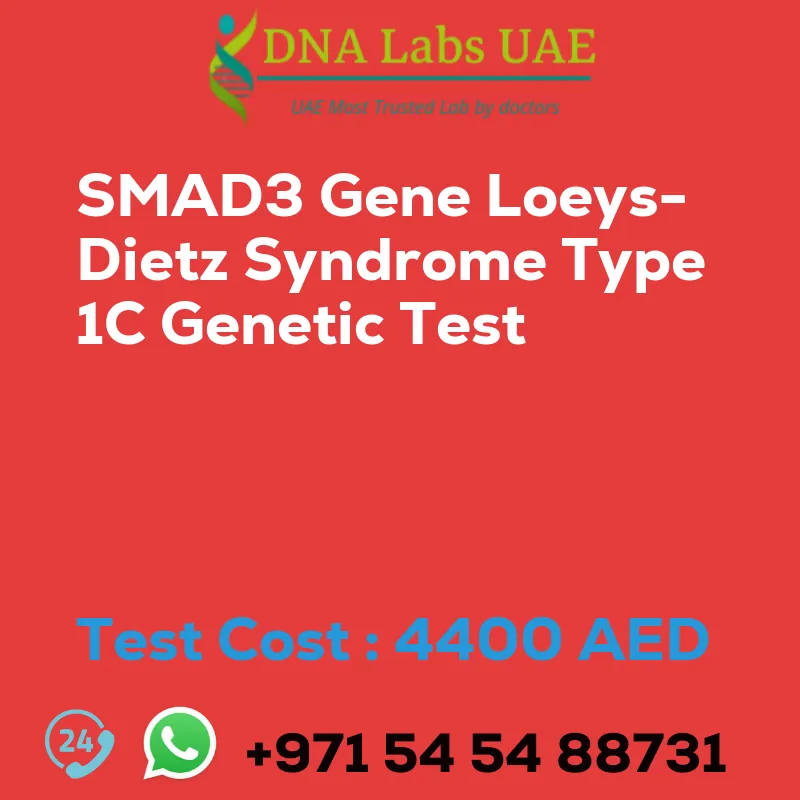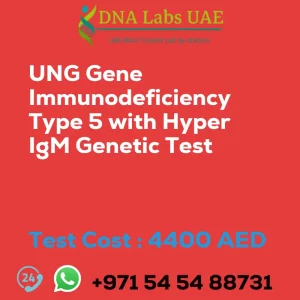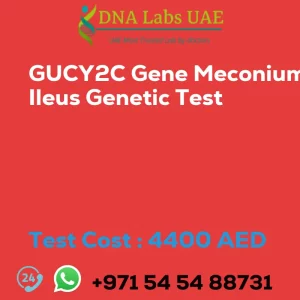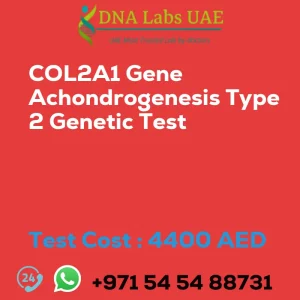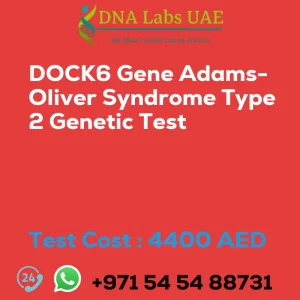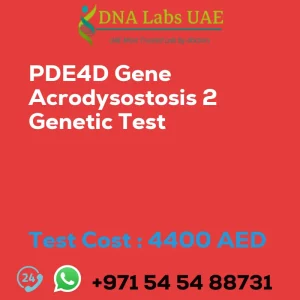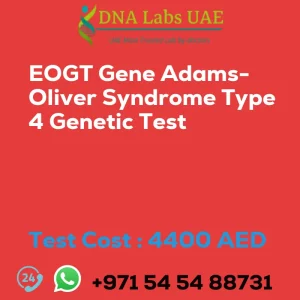SMAD3 Gene Loeys-Dietz Syndrome Type 1C Genetic Test
Test Components
- Price: 4400.0 AED
- Sample Condition: Blood or Extracted DNA or One drop Blood on FTA Card
- Report Delivery: 3 to 4 Weeks
- Method: NGS Technology
- Test Type: Osteology Dermatology Immunology Disorders
- Doctor: Dermatologist
- Test Department: Genetics
Pre Test Information
Clinical History of Patient who is going for SMAD3 Gene Loeys-Dietz Syndrome Type 1C NGS Genetic DNA Test. A Genetic Counselling session to draw a pedigree chart of family members affected with SMAD3 Gene Loeys-Dietz Syndrome Type 1C NGS Genetic DNA Test gene SMAD3.
Test Details
The SMAD3 gene is a gene that codes for a protein involved in the transforming growth factor-beta (TGF-beta) signaling pathway. Mutations in this gene have been associated with a genetic disorder called Loeys-Dietz syndrome type 1C. Loeys-Dietz syndrome is a rare genetic disorder characterized by abnormalities in the connective tissues of the body, affecting various organs and systems. Type 1C is a specific subtype of Loeys-Dietz syndrome caused by mutations in the SMAD3 gene.
NGS (Next-Generation Sequencing) is a high-throughput sequencing technology that allows for the simultaneous sequencing of multiple genes or the entire exome (the protein-coding region of the genome). In the context of genetic testing for Loeys-Dietz syndrome type 1C, NGS can be used to identify mutations in the SMAD3 gene.
The NGS genetic test for Loeys-Dietz syndrome type 1C involves obtaining a DNA sample, typically through a blood sample or a saliva sample. The DNA is then sequenced using NGS technology to identify any mutations or variations in the SMAD3 gene. The results of the test can help confirm a diagnosis of Loeys-Dietz syndrome type 1C and provide information about the specific genetic mutation present.
It’s important to note that genetic testing for Loeys-Dietz syndrome type 1C should be done under the guidance of a healthcare professional, such as a geneticist or genetic counselor, who can help interpret the results and provide appropriate counseling and management recommendations.
| Test Name | SMAD3 Gene Loeys-Dietz syndrome type 1C Genetic Test |
|---|---|
| Components | |
| Price | 4400.0 AED |
| Sample Condition | Blood or Extracted DNA or One drop Blood on FTA Card |
| Report Delivery | 3 to 4 Weeks |
| Method | NGS Technology |
| Test type | Osteology Dermatology Immunology Disorders |
| Doctor | Dermatologist |
| Test Department: | Genetics |
| Pre Test Information | Clinical History of Patient who is going for SMAD3 Gene Loeys-Dietz syndrome type 1C NGS Genetic DNA Test. A Genetic Counselling session to draw a pedigree chart of family members affected with SMAD3 Gene Loeys-Dietz syndrome type 1C NGS Genetic DNA Test gene SMAD3 |
| Test Details |
The SMAD3 gene is a gene that codes for a protein involved in the transforming growth factor-beta (TGF-beta) signaling pathway. Mutations in this gene have been associated with a genetic disorder called Loeys-Dietz syndrome type 1C. Loeys-Dietz syndrome is a rare genetic disorder characterized by abnormalities in the connective tissues of the body, affecting various organs and systems. Type 1C is a specific subtype of Loeys-Dietz syndrome caused by mutations in the SMAD3 gene. NGS (Next-Generation Sequencing) is a high-throughput sequencing technology that allows for the simultaneous sequencing of multiple genes or the entire exome (the protein-coding region of the genome). In the context of genetic testing for Loeys-Dietz syndrome type 1C, NGS can be used to identify mutations in the SMAD3 gene. The NGS genetic test for Loeys-Dietz syndrome type 1C involves obtaining a DNA sample, typically through a blood sample or a saliva sample. The DNA is then sequenced using NGS technology to identify any mutations or variations in the SMAD3 gene. The results of the test can help confirm a diagnosis of Loeys-Dietz syndrome type 1C and provide information about the specific genetic mutation present. It’s important to note that genetic testing for Loeys-Dietz syndrome type 1C should be done under the guidance of a healthcare professional, such as a geneticist or genetic counselor, who can help interpret the results and provide appropriate counseling and management recommendations. |

